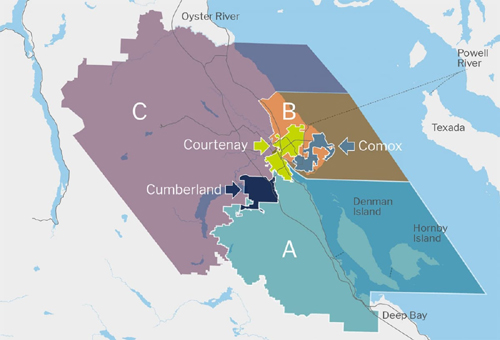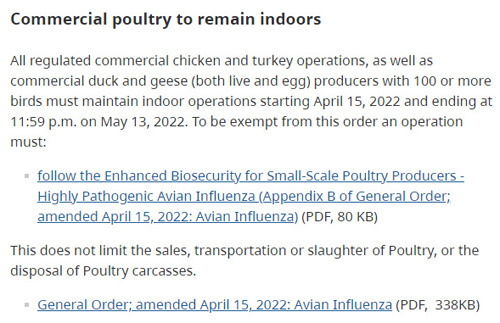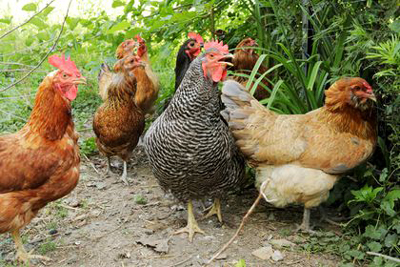
Thursday May 12, 2022 | VANCOUVER ISLAND, BC [Updated May 13, 2022]
by Mary P Brooke | Island Social Trends
H5N1 has been found in another small poultry flock in BC, this time on Vancouver Island.
It’s the first known incidence on Vancouver Island, in the Comox Valley area.
That was announced late yesterday afternoon, May 11, by the Canada Food Inspection Agency (CFIA), saying domestic birds have tested positive for the highly pathogenic H5N1 avian influenza virus.
CFIA has now reported the discovery of H5N1 virus in now eight flocks across BC since April 2022. Small or backyard flocks have tested positive in Kelowna, Richmond, Armstrong, and the central Kootenays.
Cases have also been identified south of the border, in nearby Washington State.
Infected premises under quarantine:
The infected location has been placed under quarantine. The BC Ministry of Agriculture has notified producers within a 12 km radius about the positive test result.
Suppliers like Buckerfield’s are encouraging all backyard chicken owners to isolate chickens from the wild birds.
Buckerfield’s stocks a wide variety of poultry wire, as well as poultry and bird netting to help operators separate the poultry flocks from wild bird populations.
Reduce human contact, increase cleaning:
The agency says it presumes the flu spreads through contact with infected migrating wild birds and is reminding owners to reduce human access to the flock and increase cleaning of clothing and footwear when entering areas where they are housed.
Larger flocks must be moved indoors:
BC has extended its order for all commercial poultry operators with more than 100 birds to move their flocks indoors until June 13.
Bird owners must not take their birds to commingling events starting April 28, 2022 and ending at 11:59 p.m. on May 19, 2022.
That order applies province-wide to all backyard, small flock and commercial bird producers of poultry, domestic waterfowl, doves, and ratites.
Avian flu cases have been confirmed in several other provinces, but no infections have been detected in humans.
Working with CFIA:
B.C.’s Ministry of Agriculture and Food is working closely with the CFIA and BC poultry producers to ensure enhanced prevention and preparedness measures are in place to protect poultry flocks in BC.
Backyard flocks at potential risk:
Owners of small or backyard flocks are urged to continue to be vigilant and have appropriate preventative measures in place.
Measures include eliminating or reducing opportunities for poultry to encounter wild birds, reducing human access to the flock, and increased cleaning, disinfection, and sanitization of all things (including clothing and footwear) when entering areas where flocks are housed.
Wild birds have also died of H5 infections:
Seven wild birds that died between April 20 and 27 had tested positive for H5 strains of avian influenza, said BC Agriculture and Food today. That includes three snow geese and one Canada goose in the Vanderhoof area, and individual bald eagle in each of Lac la Hache (near 100 Mile House), Bowen Island and Vancouver. These cases follow a similar finding in a bald eagle in Delta this month, and one in Vancouver in February.
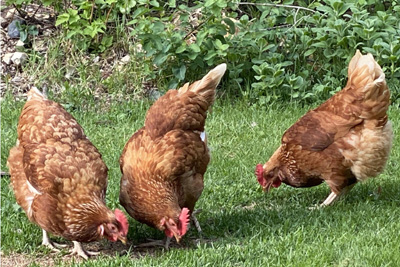
Those findings were proted through BC’s wild bird mortality surveillance program which gathers samples from sick and dead birds as well as sediment samples from wetlands the birds gather on. The surveillance is a partnership between different federal and provincial agencies and the Canadian Wildlife Health Cooperative.
Federally regulated disease:
Avian influenza is a federally regulated disease and the CFIA leads the investigation and response with provincial support for testing, mapping, surveillance and disposal.
Usually no impact on humans:
“Bird flu is caused by a type of influenza virus that rarely infects humans,” says the Mayo Clinic about avian influenza on their website.
“More than a dozen types of bird flu have been identified, including the two strains that have most recently infected humans — H5N1 and H7N9. When bird flu does strike humans, it can be deadly,” states the Mayo Clinic.
“Health officials worry that a global outbreak could occur if a bird flu virus mutates into a form that transmits more easily from person to person. Researchers are working on vaccines to help protect people from bird flu,” it is stated by the Mayo Clinic.
Bird baths & bird feeders:
Last week the BC SPAC asked the public to temporarily remove backyard bird feeders and to empty bird baths due to a highly pathogenic avian influence (HPAI) spreading across Canada. Avian viruses can spread between wild animals.
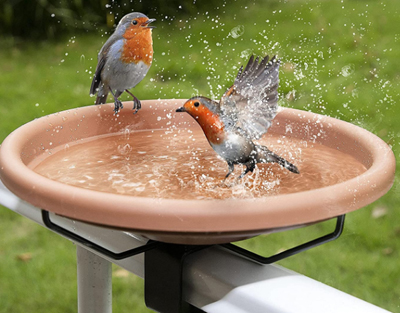
Contact info:
The following contact information can be found on the ministry website, but is provided here for quick access:
- The BC Ministry of Agriculture and Food provides diagnostic services for commercial and small flock poultry, please call: 1 800-661-9903 to report unexplained poultry illnesses or mortalities.
- Small and backyard flock owners with general inquiries should call the Small and Backyard Flock Permitting Hotline: 604 855-8255.
- The Wild Bird Mortality Investigation Program hotline at 1 866-431-2473 accepts public reports of dead wild birds.
===== RELATED:
Remove backyard bird feeders & empty bird baths (May 5, 2022)
Avian H5N1 found in flock in Central Kootenay (April 29, 2022)
Avian influenza found in backyard poultry flock in Kelowna (April 25, 2022)
===== GOVERNMENT LINKS:
Ministry of Agriculture and Food information on avian Influenza, including what to be on the lookout for, resources for small flock owners, deputy chief veterinarian orders and information about testing: https://www2.gov.bc.ca/gov/content/industry/agriculture-seafood/animals-and-crops/animal-health/reportable-notifiable-diseases/avian-influenza-ai
CFIA information on current state of avian influenza in Canada: https://inspection.canada.ca/animal-health/terrestrial-animals/diseases/reportable/avian-influenza/response-to-detections-of-highly-pathogenic-avian-/eng/1640207916497/1640207916934
CFIA fact sheet on avian influenza: https://inspection.canada.ca/animal-health/terrestrial-animals/diseases/reportable/avian-influenza/fact-sheet/eng/1356193731667/1356193918453#a2




